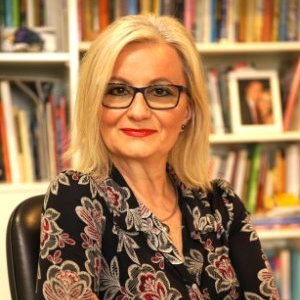Alma Besserdin of Wimmigrants on Australian Leadership

Alma Besserdin talks to Victor Perton about Australian leadership. Alma Besserdin is the Founder and Director of Wimmigrants, an organisation dedicated to assisting migrant women to rebuild their careers in their chosen country.
Victor Perton: Alma, what are your favourite stories of contemporary Australian leadership?
Alma Besserdin: I love learning about immigrant people, women in particular who succeed in Australia in their professional life and life in general. Being an immigrant myself ( I am Aussie with a funny accent), I appreciate how difficult is when you come to a new country, where you have no family and friends. Nobody knows you, it’s kind of this situation, you leave a country in which you were somebody and achieved a lot, and you come in a new country, and it feels, your identity is wiped out.
Think about LinkedIn, you have presence and people know you, but suddenly your entire profile disappears. Building life in a new country takes the time, but it doesn’t have to be like that. We have many talented people who are so qualified and experienced, coming from overseas, and yet we ignore that experience due to a lack of “local” experience. We are in a 21st-century global economy, dramatic changes in technology, and local experience is not what we need. We need strong global experience and fresh ideas.
Some of the people who came to Australia and become leaders in their field that I admire are women like Le Ho, a Vietnamese refugee who took over the waste industry and turn in a multi-million profit just in a few years. Against all the odds and in a very male dominant industry, she is becoming a leader in the waste management.
The similar story is about another Vietnamese refugee Tan Le, the Young Australian of the Year. She is the co-founder of SASme Wireless Communication and co-founder of Emotiv. She arrived in Australia as a Vietnamese refugee in 1982.
These are two examples of women Entrepreneurs who pushed through all barriers and succeeded. I often believe women like this turn into Entrepreneurs as they experience resistance in the new environment due to lack of language and support.
Let me put it this way, when you are new in the country, in particular when you come as a refugee, you have nothing to lose starting your own business, you can make it or break it!
This was a reason why I have established Wimmigrants. To be able to help other professional women coming to Australia hit the ground running faster and to help them overcome the differences in our business and social culture.
Victor Perton: Alma, what are the qualities that Australians seek from their leaders?
Alma Besserdin: I don’t think Australian people are any different to what they expect from their leaders in comparison to other countries. We are all human beings who want to be treated with dignity and respect and able to be recognised for what we do.
Perhaps one difference in Australian culture is that people don’t want anything to be done behind their back. I have seen many times when organisations go through some kind of changes, and they don’t communicate to staff “why” they are changing.
I was told many times when I implemented changes within various organisations- staff tell me we can handle whatever comes our way, but tell us the truth
We want our leaders to have compassion and be “human” first and foremost.
Sadly, I have observed that lots of leaders out there are stuck in their ‘titles’. It’s not the title that determines the leader, it’s their vision, empathy, charisma and inspiration. People will follow leaders if they believe in them, but if they don’t believe in them, they will do what’s required, but their hearts will not be in it.
The good thing is there are companies out there who treat their staff as the most valuable assets of the organisation. Today’s world is changing so fast, new generations have a different style, and we must learn to adapt, be open-minded and collaborative.
We are all leaders in what we do, we don’t need to have teams to be leaders. In the future world people will be paid for problem-solving and the difference they can make, not for how long they have been in their jobs and what titles they have.
This article was first published on the Australian Leadership blogspot 3 April, 2017 and is published here with the kind permission of the author.
Victor Perton is the Director of The Centre for Optimism and served for 18 years in the Victorian Parliament. He is a former Victorian Commissioner to the Americas and worked on the Australian G20 presidency.












